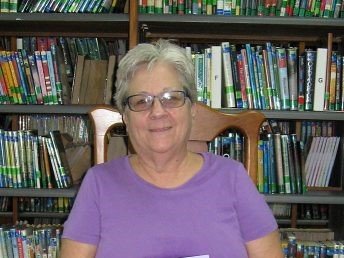Giving non-fiction rightful place

YOU DON’T have to be an avid reader to appreciate the NGC Bocas Lit Fest, which ran this year from May 1 to 5 at the National Library. Actually, Bocas is a great launch pad for inquisitive minds that want to discover literature or develop a better understanding of issues in the news.
For me, one of this year’s most enlightening discussions came on the final day of the Lit Fest, during a panel discussion on biography, entitled Heroes and Villains. The discussion gave a clear insight into how biographers approach writing about their subjects.
The three panellists, Prof Emeritus Funso Aiyejina, Prof Selwyn Cudjoe and Trinidad Newsday Editor-in-Chief Judy Raymond, discussed the challenges of writing biographies and answered probing questions from the moderator, renowned Caribbean historian and Prof Emerita Bridget Brereton and the audience.
Most interesting was Brereton’s question about whether biographers have to like their subjects. Aiyejina, who discussed his biography of Trinidad writer Earl Lovelace, and Raymond, who wrote a biography of folk dancer and founder of the Little Carib Theatre Beryl McBurnie, both felt there had to be some connection between writer and subject; some appreciation of the person’s life.
Raymond made an important point, which addressed the tone of extraordinary biographical writing. She said there is a tendency in this country to categorise famous people as “icons,” and icons, historically speaking, were one-dimensional religious paintings. Good biographers strive to capture all sides of a person: the good, the bad and the ugly.
In other words, biographers strive to capture the essence of a person – not just the notion of a subject being purely good or purely evil, which once seemed commonplace.
Also, in traditional biographies, we are accustomed to seeing how events in a certain time and place shape individuals. Raymond turns the tables and shows how people can shape events. McBurnie symbolises the cultural movement that was equally important to the political movement taking place and led to TT’s independence.
Aiyejina had a special challenge in writing a biography of Lovelace, who is his friend. On the one hand, he had anecdotes and information no one else had. On the other hand, it’s difficult to write objectively about one’s friend. That, of course, begs another question: can biographies ever truly be objective?
In McBurnie’s biography, Raymond paid particular attention to McBurnie’s quirky and surly side. She is a character as complex as any found in fiction, and her passion sometimes made her obstinate and difficult to deal with.
When discussing The Slave Master of Trinidad: William Hardin Burnley and the Nineteenth-Century Atlantic World, Cudjoe felt that liking or disliking the person featured in a biography was entirely irrelevant. Instead, he found the theme or subject associated with the person to be of paramount importance. As he rightly said, “You can’t understand slavery only by looking at slaves. You have to understand the slavemaster.”
Someone in the audience brought up the place of controversial figures in biographies, using US founding father Thomas Jefferson as an example. Jefferson, who wrote the Declaration of Independence, has been the subject of several biographies because he had several children with Sally Hemings, an enslaved woman whom he owned.
Cudjoe said Jefferson was one of the most brilliant minds of his day, making the point once again that people are a complex combination of character traits, and Jefferson’s place in history – or any other controversial person’s, for that matter – can’t simply be written out of history because he violated the hero status bestowed on him.
The discussion on biography had a good turnout, but that didn’t surprise me. I know that biographies are among the most sought-after literature in this country. Many schools have told me that teenage boys who are reluctant readers enjoy non-fiction that relates to their lives.
A study my daughter, Ijanaya, did in Port of Spain Prison for her master’s degree in library science revealed that 90 per cent of inmates preferred non-fiction. Biographies headed the list.
It’s time we recognise the importance of including non-fiction – particularly biographies – on school reading lists.
The good news is that we have Caribbean biographies to choose from. The biographies coming out of the University of West Indies Press, which include the Earl Lovelace and Beryl McBurnie biographies, are short (only about 100 pages). They’re engaging and excellent examples of writing that would fit comfortably in schools.
We are beginning to learn a lot about non-fiction writing through the NGC Bocas Lit Fest, and it’s clear how well-attended these non-fiction sessions are. Now it’s time to give non-fiction its rightful place in our schools.


Comments
"Giving non-fiction rightful place"